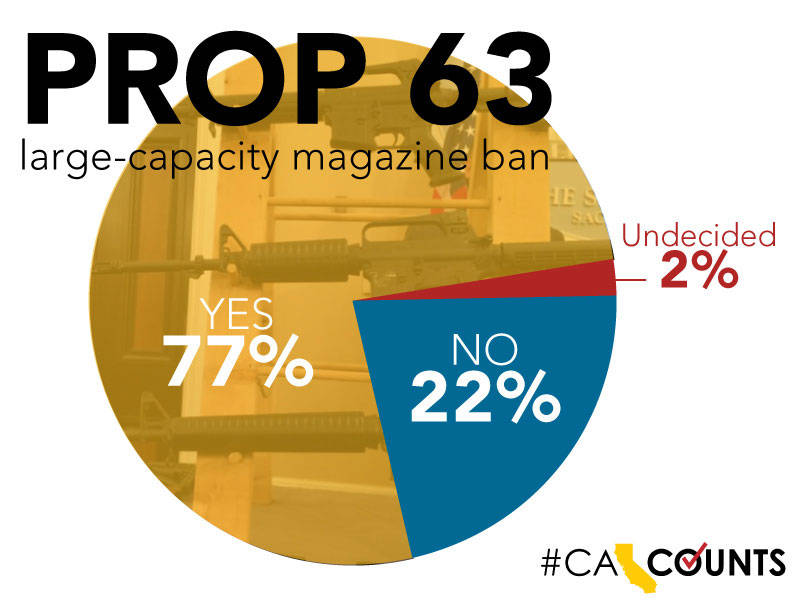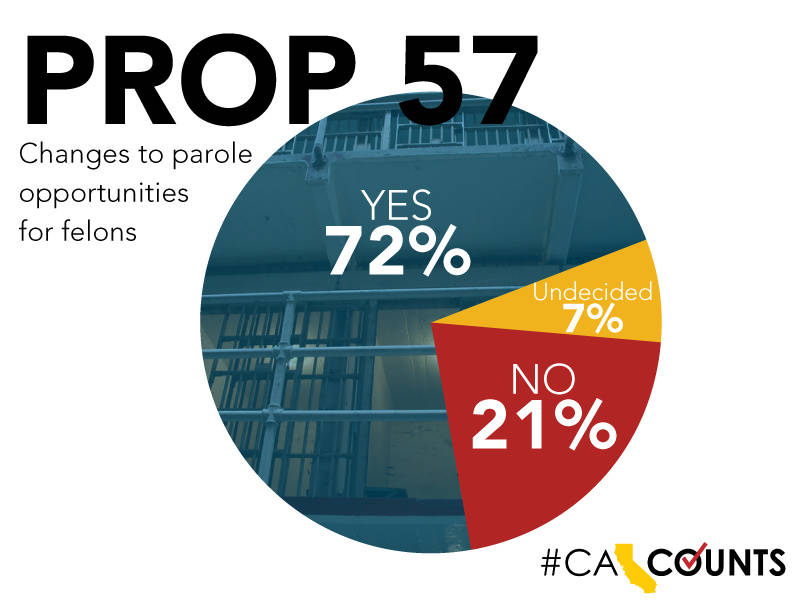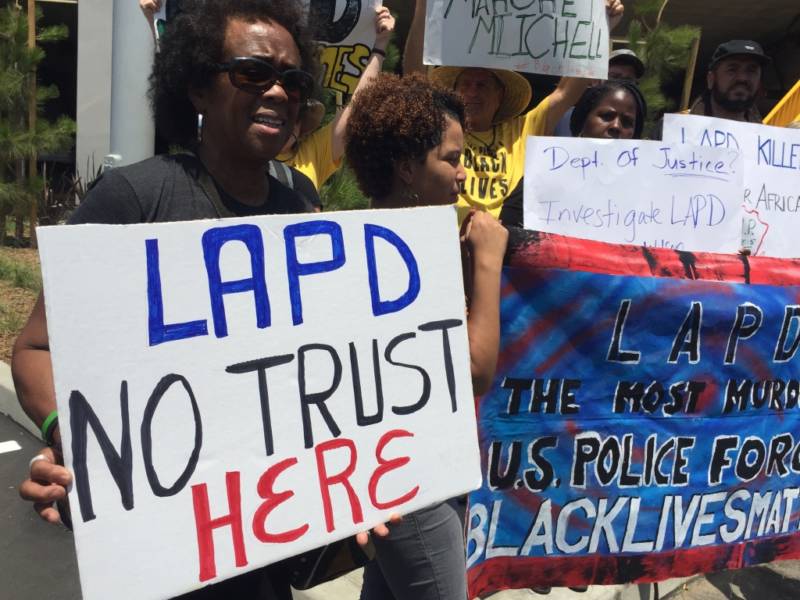A significant difference in age groups also exists. Forty-three percent of people 18-25 said profiling is a huge problem, compared to 14 percent of people age 65 and older.
When asked about excessive force by police toward people of color, 66 percent of respondents said it was a huge or significant problem in the U.S. Twenty-seven percent said it was just a minor problem or not one at all.
Minority and women respondents tended to see police profiling and excessive use of force as more of a problem than white men — whether they were Democrats or Republicans, said David Barker, director of the Institute for Social Research at Sacramento State.
But fewer respondents think these same issues are a significant problem in California. Fifty-nine percent identified racial profiling as a huge or significant problem in the state. Fifty-two percent of respondents said excessive use of force was a huge or significant problem in the state.
"The fact that we are a rather progressive state probably leads the average person to think that, ‘Oh that’s a problem they have elsewhere,'" Barker said. “They may think we are more respectful of diversity."
Black Lives Matter leader in Los Angles Melina Abdullah said some people have an incorrect view of reality in the Golden State.
“There is this facade of diversity and inclusion within California — that’s how California is painted by Hollywood,” Abdullah said. “It’s all beaches and palm trees and all kind of folks. In actuality, California is home to the most murderous police department in the country — the LAPD. People forget Rodney King and other acts of brutality, too.”
One retired police captain said there is less excessive force than people think.
"People in minority groups tend to express more concern than others because there tends to be more negative interaction with the police in higher-crime areas," said retired LAPD Capt. Greg Meyer, who now testifies in use-of-force lawsuits. "People’s opinions tend to be based on personal or second-hand experience, and tend to be very media-driven."
He added that the media do a "generally poor job of interpreting police work." Reporters in turn have long complained that police departments fail to explain thoroughly how shootings happen.
People are also divided over the Black Lives Matter movement, which began advocating against profiling and excessive force by police in the wake of the 2014 police shooting of 18-year-old Michael Brown in Ferguson, Missouri. Brown was black. The officer Darren Wilson, who was cleared of any wrongdoing, is white.
About a third of respondents view the movement warmly, while another third view Black Lives Matter coldly. Twenty-four percent are uncertain or ambivalent.
The police-backed "All Lives Matter" movement gets more support. A little over half of respondents view it favorably, compared to 25 percent who view it negatively.
“This is not unexpected,” Abdullah of Black Lives Matter said. “This is very reflective of our work and what we run into.”

The survey also examined a variety of propositions on the November ballot, including two addressing criminal justice issues. Both Proposition 63, a gun control measure, and Proposition 57, a sentencing reform proposal, are strongly supported by respondents.
Proposition 63 would prohibit the possession of large-capacity ammunition magazines and would require most individuals to pass a background check and obtain authorization from the California Department of Justice to purchase ammunition.
Proposition 57 would increase parole chances for felons convicted of nonviolent crimes and give them more opportunities to earn credits for good behavior. It would also allow judges, not prosecutors, to decide whether to try certain juveniles as adults in court.

Editor's Note: This story has been updated to include additional information regarding the methodology of the survey.
California Counts, a statewide public media election collaborative, contracted with the CALSPEAKS Opinion Research Center at the Institute for Social Research, Sacramento State University, to conduct an extensive survey of Californians’ electoral and public policy attitudes.
The Institute for Social Research at Sacramento State fielded the survey online and through the mail from Aug. 15 to 24, 2016 using the CALSPEAKS survey panel. It yielded 915 completed surveys and 44 partially completed surveys. CALSPEAKS obtains a representative sample of Californians, stratified by the five major regions in the state. For information on the methodology, please visit: http://www.csus.edu/isr/calspeaks/. For questions about the November election, (the U.S. Senate race and propositions 57, 63 and 64), results reflect registered voters only.
The margin of error for any individual survey question is equal to or less than +/- 4 percentage points for the overall sample. However, the margins of error are larger if focusing on smaller subgroups, especially racial or ethnic subgroups. These are equal or less than +/- 16 percentage points for African-Americans, and 10 percentage points for Latinos or those of "other races/ethnicities" (including Asian-Americans, Pacific Islanders, Native Americans, and those of mixed race/ethnicity). The numbers, however, have been weighted to reflect California¹s population and are valid for comparisons across the sub-groups.
California Counts is a collaboration with four public media organizations in California to cover the 2016 election. This includes KPCC in Los Angeles, KQED in San Francisco, Capital Public Radio in Sacramento and KPBS in San Diego.


